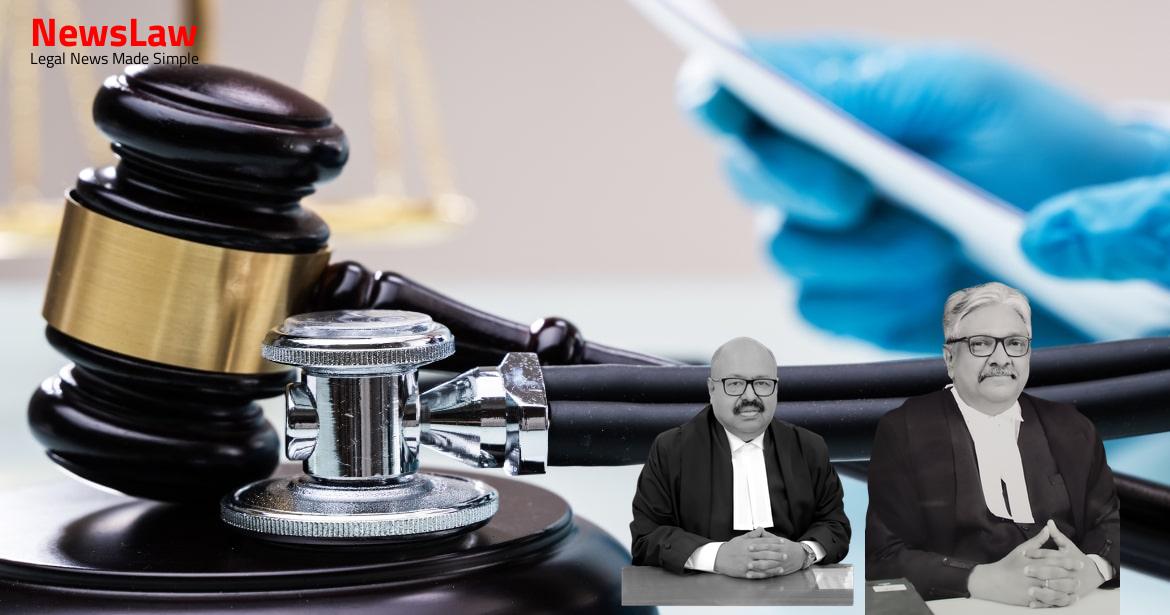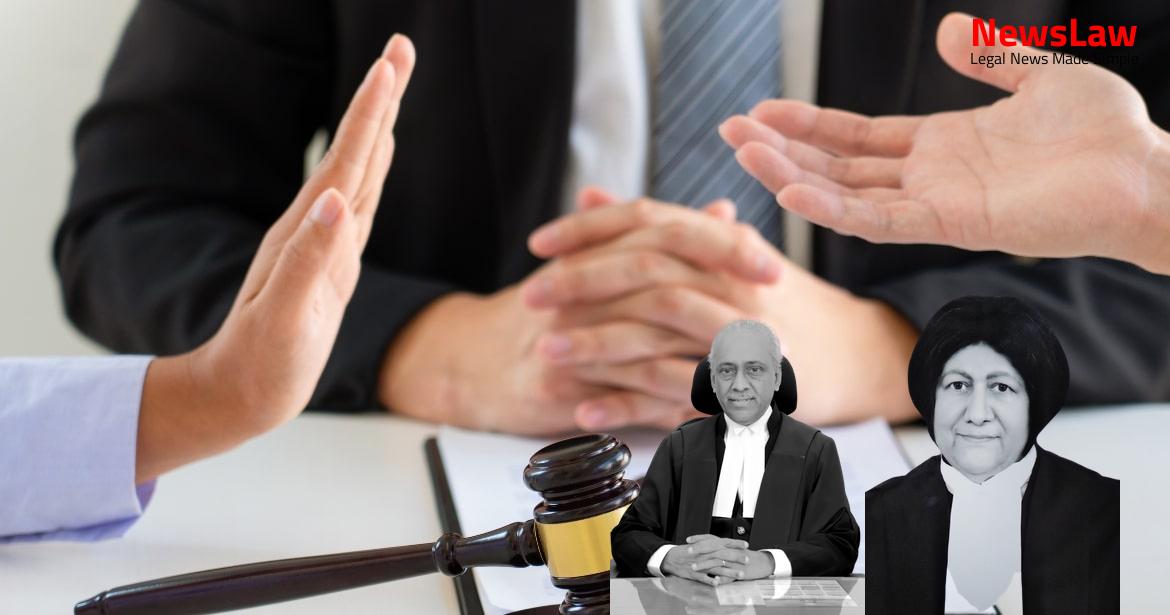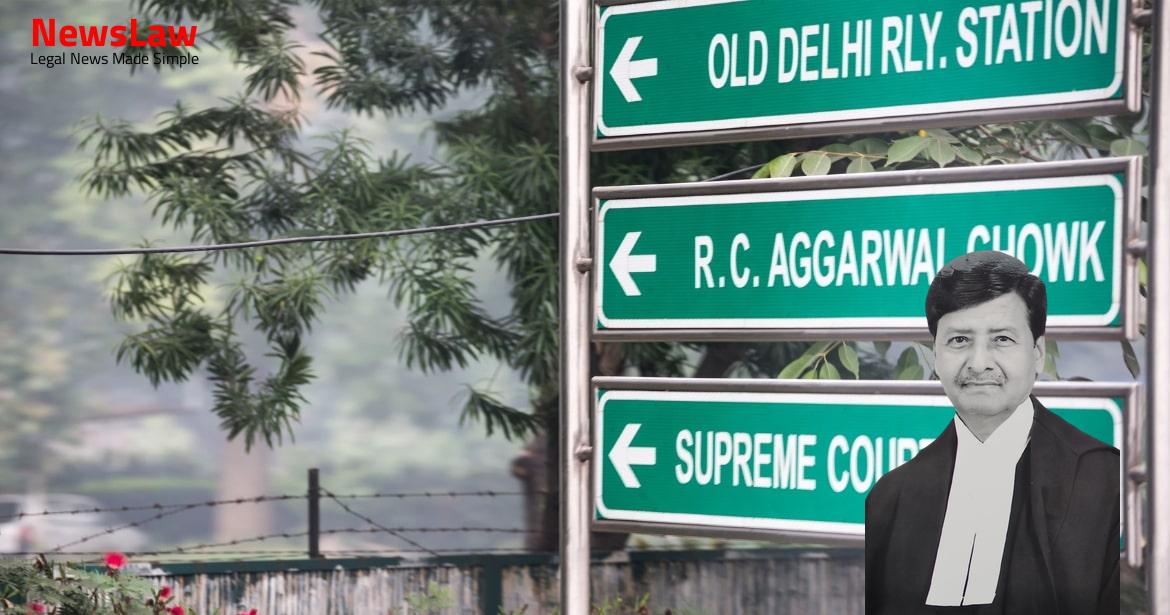1 herein while undergoing follow up care and treatment after a major neurosurgery in the care of respondent no. 1-hospital on 21.10.1998, who advised him to get admitted to respondent no. The deceased was thereafter shifted to private room at about 04.15 p.m and at about 04.30 p.m, the doctors visiting the deceased were informed about 3 pain in the neck region, which seemed to have transferred downward lower than the region where pain used to occur prior to operation. The grievance of complainant-appellant is that the deceased was not attended to by any doctor from neurosurgery team who had operated the deceased after he was shifted into the private room till 11.00 P.M. The deceased did not have any history of diabetes or hypertension as has been stated by R-2 herein in his evidence neither did he have any heart problem. In the facts and circumstances, no case of medical negligence has been proved nor can it be said that the aftercare treatment of the deceased till he suffered a cardiac arrest was inadequate so as to hold the respondents herein (2009) 3 SCC 1 6 liable for medical negligence.
Tyagi had a telephonic conversation with the deceased wherein he was informed that Nimulid did give some temporary relief, basis which he concluded that the symptoms of pain felt by the patient were clearly normal post operative reaction. Learned senior counsel further states that the Commission has not appreciated that the present case reflects clear example of negligence due to absence of care. Learned counsel has drawn our attention to the records of the hospital containing pre and post operative history of the patient.
2 submits that it was explained to the appellant and the deceased that the patient would be examined in the recovery room first and thereafter as per standard practice followed by the hospital, all patients who 10 do not show signs of complications in the Recovery Room and have no pre-operative medical problems are shifted to their ward/room. Thereafter, he left the hospital for his premises and submits that since the time he left i.e., around 5,30 p.m. Learned senior counsel categorically refutes the contentions of the appellant and submits that the impugned order suffers from no infirmity warranting interference by this Court and is liable to be accordingly dismissed. The material available on the record demonstrates that as per the standard practice, all patients who show no signs of complications in the recovery room and have no post or pre- operative complications are sent to their rooms.
State of Punjab and Another has observed thus: “A professional may be held liable for negligence on one of the two findings: either he was not possessed of the requisite skill which he professed to have possessed, or, he did not exercise, with reasonable competence in the given case, the skill which he did possess. Tyagi after the patient was shifted to the private room. Pain in the neck region started increasing at 06:00 p.m. Tyagi spoke to the complainant and the patient on which the patient informed him that he was better. pain killer was given and around 11:00 p.m., the patient lost consciousness due to severe cardiac arrest. Ahuja stated 16 that pain in the neck along with sweating and nausea are not the symptoms of cardiac respiratory arrest. Therefore, it was difficult for treating doctors including the duty doctor or the hospital to assume that the patient may suffer cardiac arrest and moreover, the patient had also not complained of pain in any other part of the body except neck region. The allegation is of failure of the Doctor to take the follow- up action after surgery on 23.4.1998, a delayed decision to amputate the leg subsequent to re- exploration on 24.4.1998, and the alleged foreign undue visit of the Doctor. Ishfaq(2009) 3 SCC 1, this court observed that the doctor cannot be held liable for medical negligence by applying the doctrine of res ipsa loquitur for the reason that a patient has not favourably responded to a treatment given by a doctor or a surgery has failed. Simply because a patient has not favourably responded to a treatment given by a doctor or a surgery has failed, the doctor cannot be held straightaway liable for medical negligence by applying the doctrine of res ipsa loquitur. Ramanujam[(2009) 7 SCC 130] , this Court held that the Commission ought not to presume that the allegations in the complaint are inviolable truth even though they remained unsupported by any evidence. Batra Hospital and Medical Research Centre[(2010) 3 SCC 480], a complaint was filed attributing medical negligence to a doctor who performed the surgery but while performing surgery, the tumour was found to be malignant.
Firstly, the standard of care, when assessing the practice as adopted, is judged in the light of knowledge available at the time (of the incident), and not at the date of trial. Sections 88, 92 and 370 of the Penal Code give adequate protection to the professionals and particularly medical professionals.” 34. Ishfaq, (2009) 3 SCC 1 wherein it is stated that simply because the patient has not favourably responded to a treatment given by doctor or a surgery has failed, the doctor cannot be held straight away liable for medical negligence by applying the doctrine of Res Ipsa Loquitor. In the instant case, apart from the allegations made by the claimants before the NCDRC both in the complaint and in the affidavit filed in the proceedings, there is no other medical evidence tendered by the complainant to indicate negligence on the part of the 22 doctors who, on their own behalf had explained their position relating to the medical process in their affidavit to explain there was no negligence. However, since it became dysfunctional on 24.4.1998 and considering the critical condition of the patient, an alternative angiography test was advised and conducted and the re-exploration was thus planned. No doctor can assure life to his patient but can only attempt to treat his patient to the best of his ability which was being done in the present case as well.” 23 29. The case in hand stands on a better footing, in as much as there was no mistake in diagnosis or a negligent diagnosis by Respondent no.
Pending application(s), if any, shall stand disposed of.



